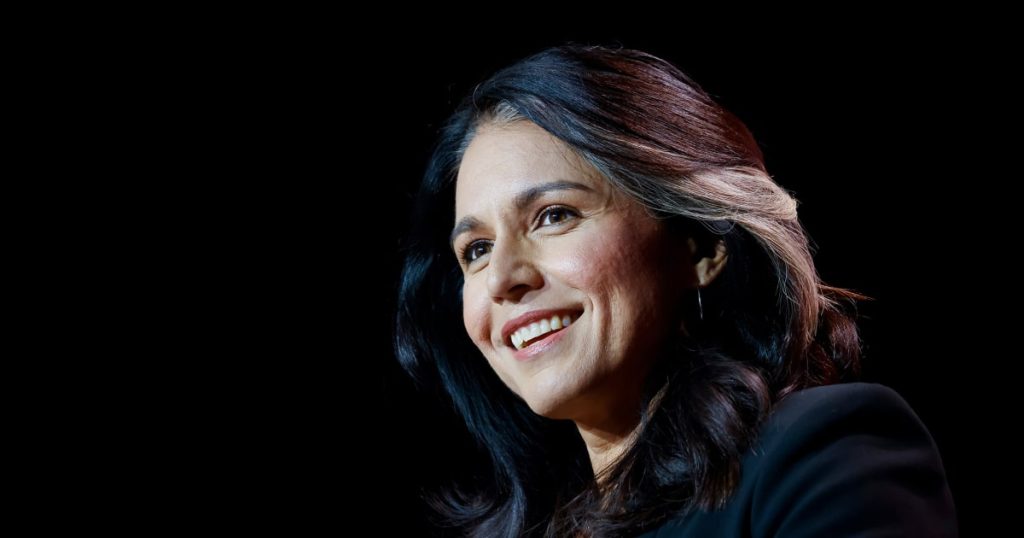President-elect Donald Trump has nominated Tulsi Gabbard, a former House Democrat, to be the director of national intelligence. Gabbard, who endorsed Trump in 2022 and joined the Republican Party last month, has a military background and served in the House from 2013 to 2021. If confirmed, she will be the first person of color to hold the position, which was created by President George W. Bush. Gabbard has faced criticism for meeting with Syrian President Bashar al-Assad in 2017, but she defended the meeting as a step towards peace. She also did not vote for Trump’s first impeachment in 2019 and has criticized the House Jan. 6 committee for what she sees as political motivations.
Gabbard has been a vocal supporter of Trump and joined his transition team as co-chair, helping him prepare for debates and endorsing him in the 2022 election. She left the Democratic Party shortly before the 2022 midterm elections, accusing the party of undermining Constitutional freedoms. Gabbard ran for the Democratic nomination in the 2020 presidential race but ended her campaign in March 2020 to endorse Joe Biden. She has a military background as a lieutenant colonel in the Army Reserve and has been deployed to the Middle East and Africa. Gabbard’s nomination is seen as a bold move by Trump to diversify his Cabinet.
Critics of Gabbard have pointed to her meeting with Assad and her voting record on impeachment as reasons she may not be suited for the director of national intelligence role. However, Gabbard’s supporters see her as a strong and fearless leader who will prioritize the safety, security, and freedom of the American people. She has faced backlash from Democrats for her support of Trump and her criticisms of the House Jan. 6 committee, but she remains steadfast in her beliefs. As the first person of color to potentially hold this position, Gabbard’s confirmation would represent a significant milestone in the intelligence community.
Gabbard’s nomination has sparked controversy, with some questioning her qualifications and others praising Trump’s decision to nominate a strong and independent thinker. Gabbard’s military background and experience in government could make her uniquely qualified for the role, but her past actions and statements have drawn criticism. The intelligence community plays a crucial role in national security and Gabbard will face scrutiny during the confirmation process. Despite the challenges ahead, Gabbard remains focused on her mission to defend American freedoms and promote peace through strength.
As Gabbard prepares to take on the role of director of national intelligence, she will face a range of challenges and opportunities. Her background in the military and government will likely serve her well in this position, but she will need to navigate a complex and rapidly changing global landscape. Gabbard’s nomination has already sparked debate and discussion, with supporters and critics voicing their opinions on her suitability for the role. Ultimately, Gabbard’s confirmation will hinge on her ability to demonstrate her commitment to upholding the Constitution and protecting the safety and security of the American people. Only time will tell how Gabbard will fare in this crucial role and what impact she will have on the intelligence community.












